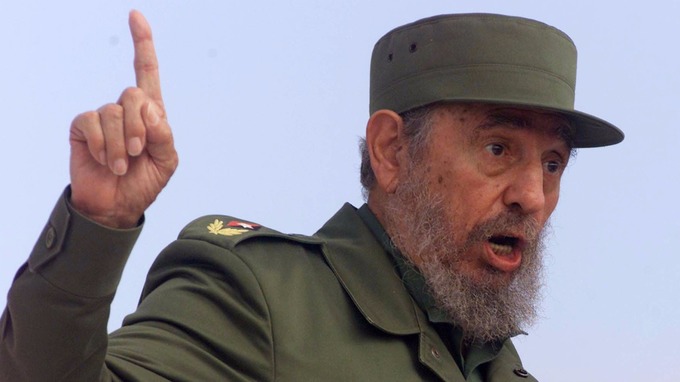HAVANA, (MILLAT+APP/AFP) – Cuban revolutionary leader
Fidel Castro, a towering figure of 20th century history, died
Friday aged 90, his brother, President Raul Castro, announced.
One of the world’s longest-serving rulers and modern
history’s most singular characters, he defied successive US
administrations and assassination attempts.
He crushed opposition at home to lead the communist
Caribbean island through the Cold War before stepping aside
in 2006.
He eventually lived to see the historic restoration
of diplomatic ties with Washington last year.
“The commander in chief of the Cuban revolution died
at 22:29 hours this evening,” the president announced on
national television just after midnight Friday (0500 GMT
Saturday).
Raul Castro, who took power after his elder brother
Fidel was hospitalized in 2006, said that the revolutionary
leader’s remains will be cremated early on Saturday, “in
compliance with his expressed will.”
– Political survivor –
======================
The bearded, cigar-puffing leader, renowned for trademark
army fatigues and hours-long public tirades, grabbed power in a
January 1, 1959 revolution.
Living by the slogan “socialism or death,” he kept the
faith to the end, even as the Cold War came and went.
Castro was at the center of the Cuban Missile Crisis in
1962, as the world stood on the brink of nuclear war until the
Soviet Union blinked in its bid to station strategic missiles
on Cuban soil.
Well into his old age, Castro unleashed furious diatribes
against Washington until he was slowed by surgery in July 2006.
– Revolution –
==============
An energetic symbol of defiance for developing countries
and a driving force behind the Non-Aligned Movement, Castro proved
even a small sovereign nation could thumb its nose at the world’s
biggest superpower.
Born August 13, 1926 to a prosperous Spanish immigrant
landowner and a Cuban mother of humble background, Castro was
a quick learner and a keen baseball player, reportedly once
dreaming of a life in the US big leagues.
His political path was set when he formed a guerrilla
opposition to the US-backed government of Fulgencio Batista,
who seized power in a 1952 coup.
In 1953 Castro led a small rebel force that attacked
a major military base, the Moncada Barracks, in a bid to oust
Batista. The drive failed. Castro was put on trial, and in a
long, now famous closing self-defense speech said he did
not care if was convicted. “History will absolve me,” he
said.
After he was jailed for two years by the Batista regime,
he went into exile in Mexico and organized followers for their
ultimately triumphant uprising.
It was launched when, on December 2, 1956 they sailed
to southeastern Cuba on the ship Granma. Twenty-five months
later, they ousted Batista and Castro was named prime
minister.
His power undisputed in 1959, the Jesuit-schooled lawyer
threw Cuba’s lot in with the Soviet Union, which bankrolled his
regime until 1989, when the Eastern Bloc’s collapse sent the
economy into a tailspin.
– Ceded power –
===============
He ceded power to Raul, 85, in July 2006 when Fidel
underwent intestinal surgery and disappeared from public
view.
Castro’s private life was just that. In 1948, he
married Mirta Diaz-Balart, who gave him a son, Fidelito.
The couple later divorced.
In 1952, Castro met Naty Revuelta, a socialite
married to a doctor, and they had a daughter, Alina,
in 1956.
He met Celia Sanchez, in 1957 and remained with
her until her death in 1980.
Since the 1980s, Castro’s partner has been Dalia
Soto del Valle, with whom he has had five children: Angel,
Antonio, Alejandro, Alexis and Alex.
